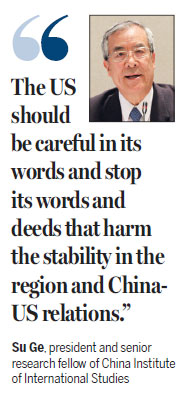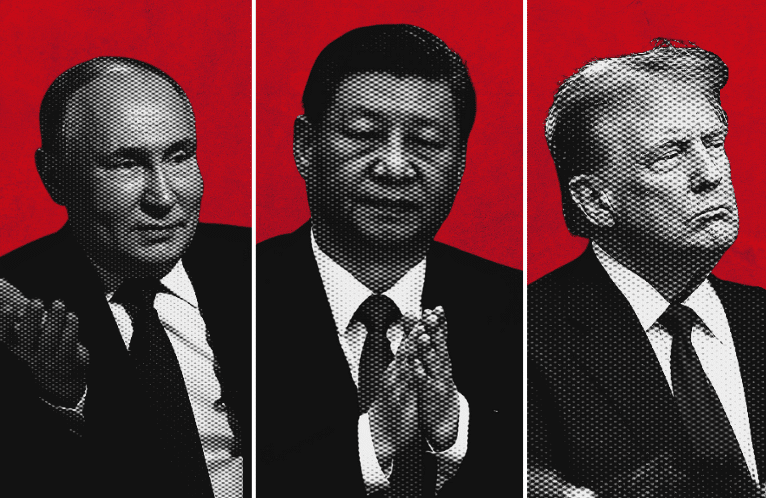Asian Regional Issues Critical to US-China Ties
Asian regional issues have become the major test of China-US relations after tensions on the cyber security front were reduced following President Xi Jinping’s state visit to the US last September, according to experts.
Ken Lieberthal, a senior fellow of the John L. Thornton China Center at the Brookings Institution, said the two countries agree that they should cooperate where they can, and seek to manage differences so they don’t dominate the relationship. He said issues around the world become more manageable when the two nations work in consort.
“The huge exception is Asian regional issues,” he said.
“I cannot think of an Asian regional issue where our relationship is improving, rather it has become more difficult,” Lieberthal said on Thursday at a seminar at the Brookings on regional cooperation and competition between China and the US in the Asia Pacific.
Lieberthal warned that if the two countries end up of having a fundamentally antagonistic relationship, it will be a monumental failure of diplomacy and politics on both sides.
Su Ge, president and senior research fellow of the China Institute of International Studies (CIIS), said the US is not a claimant in the South China Sea, so the South China Sea issue should not become an issue between the two countries.
Su, a former Chinese ambassador to Iceland, said the US should keep its promise of not taking sides on the sovereignty issue and respect the efforts made by countries in the region in maintaining peace there.
“The US should be careful in its words and stop its words and deeds that harm the stability in the region and China-US relations,” Su said.
Jonathan Pollack, also a senior fellow at the Brookings, pointed out that East Asia looks much more collaborative than other parts of the world. But he warned of currents emerging in both countries that could predict a much less certain future.

Teng Jianqun, director and senior research fellow of the Department of American Studies at CIIS, said he was optimistic about the relationship in the long term, noting that the MOUs between the two militaries concluded in the last two years have played a very important role in maintaining peace and stability.
Lieberthal agreed that the military-to-military dialogue has been its best ever. He believes both countries should do a better job of articulating their long-term intentions, saying he does not believe that the US government’s goal is to contain China.
Many in China see US President Barack Obama’s hosting of leaders from the 10 ASEAN nations on Feb 15-16 in the Sunnylands estate in California as a bid to rally them against China.
On Thursday, Chinese Foreign Ministry spokesman Lu Kang said the Chinese side is willing to see further development of relations between the US and ASEAN countries.
“We hope that their relationship will be truly conducive to regional peace, stability and development,” he said.
As for whether or not China is worried that the meeting may be aimed at China, Lu cited a US government official saying publicly a day earlier that the meeting is not anti-China.
“We hope that when the meeting is concluded, messages from your media reports can tell us that this meeting was indeed not aimed at China,” Lu said.
On Thursday, US State Department spokesman John Kirby reiterated that the US policy on the South China Sea has not changed, “which is the tensions to de-escalate and claims to be resolved peacefully diplomatically,” he said.
By CHEN WEIHUA Feb. 5, 2016 on CHINA DAILY
Read more here








